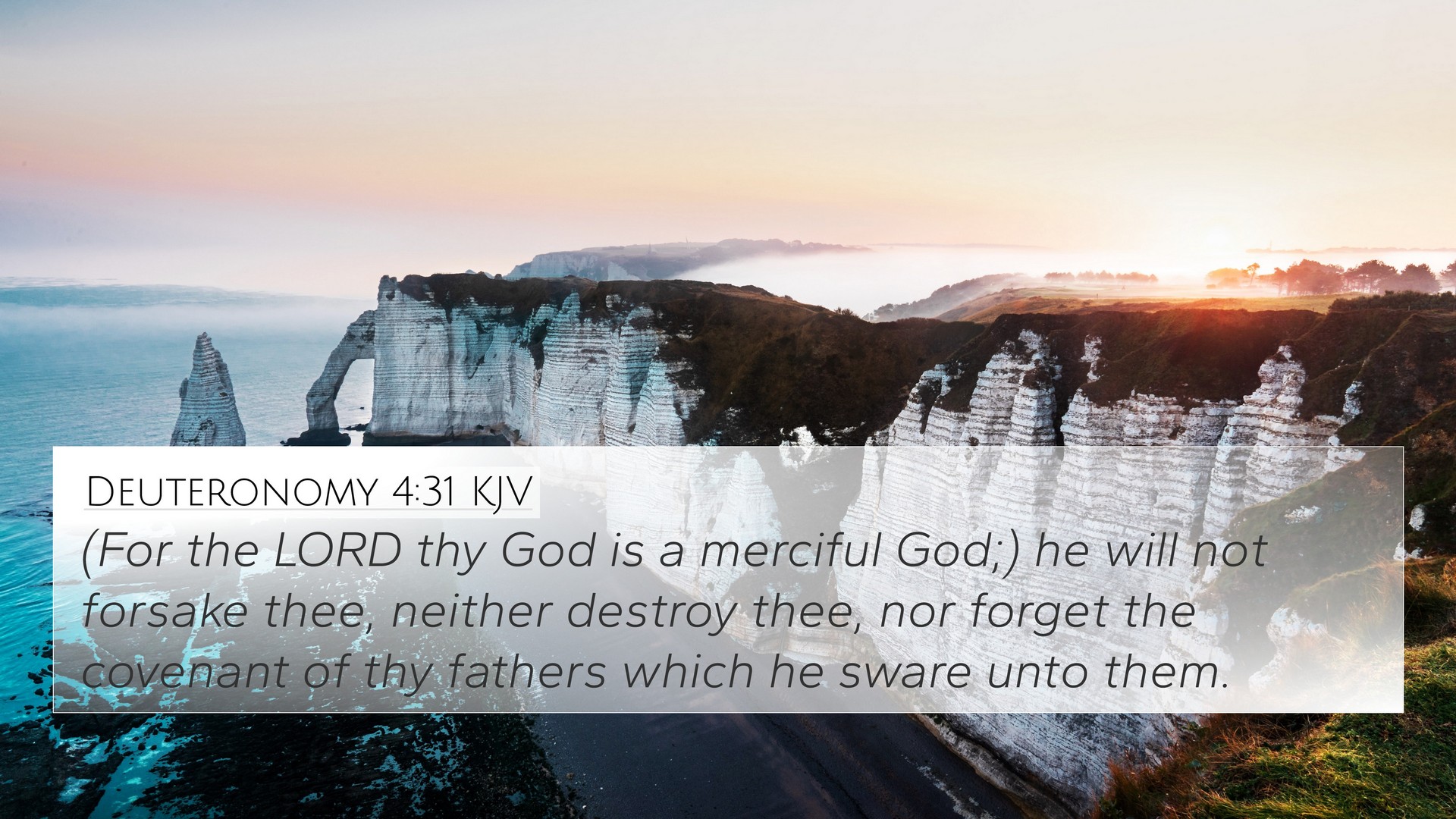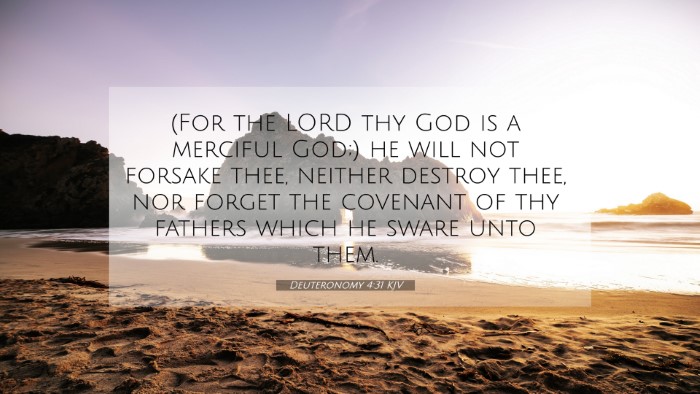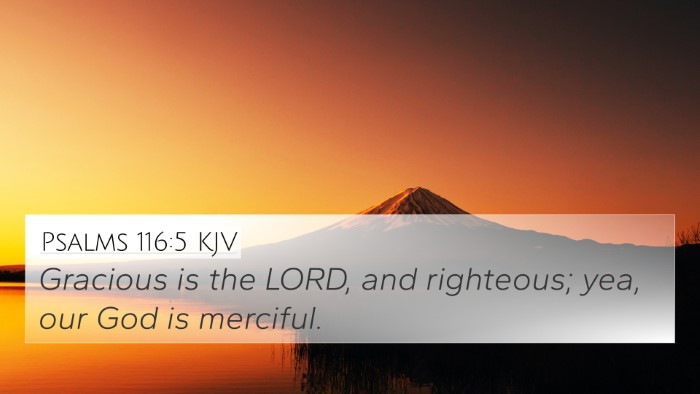This section features a detailed cross-reference designed to enrich your understanding of the Scriptures.
Below, you will find carefully selected verses that echo the themes and teachings related to Deuteronomy 4:31 KJV. Click on any image to explore detailed analyses of related Bible verses and uncover deeper theological insights.
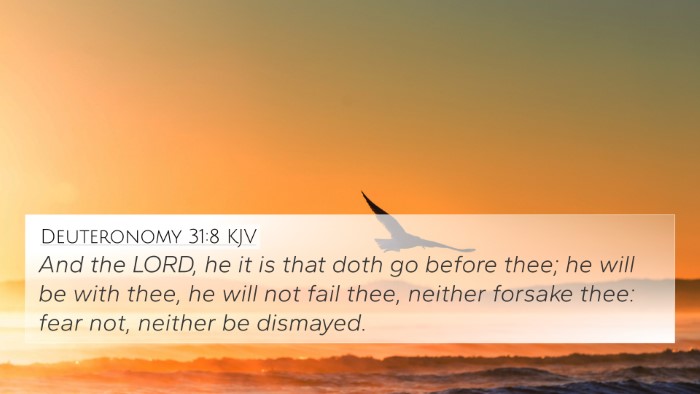 Deuteronomy 31:8 (KJV) »
Deuteronomy 31:8 (KJV) »
And the LORD, he it is that doth go before thee; he will be with thee, he will not fail thee, neither forsake thee: fear not, neither be dismayed.
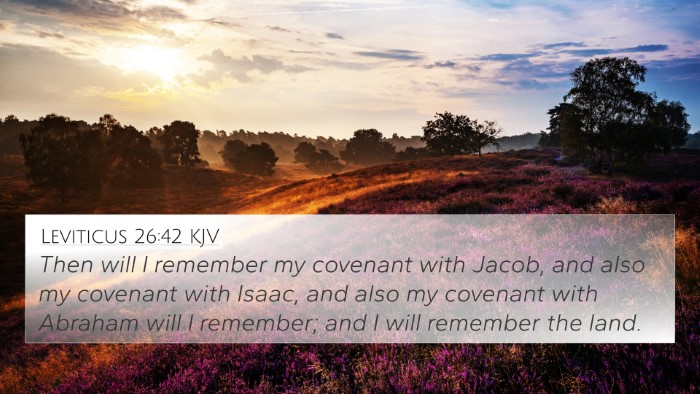 Leviticus 26:42 (KJV) »
Leviticus 26:42 (KJV) »
Then will I remember my covenant with Jacob, and also my covenant with Isaac, and also my covenant with Abraham will I remember; and I will remember the land.
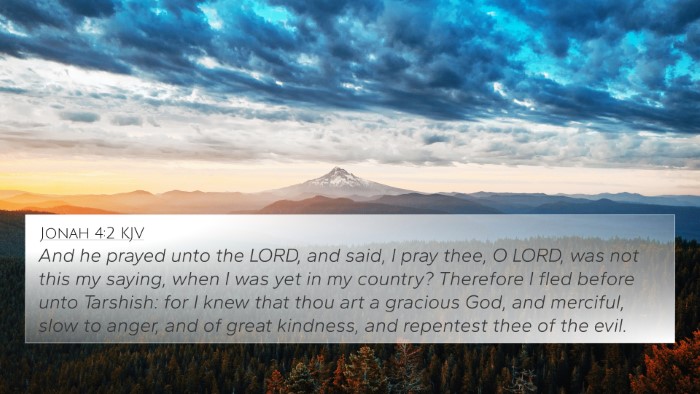 Jonah 4:2 (KJV) »
Jonah 4:2 (KJV) »
And he prayed unto the LORD, and said, I pray thee, O LORD, was not this my saying, when I was yet in my country? Therefore I fled before unto Tarshish: for I knew that thou art a gracious God, and merciful, slow to anger, and of great kindness, and repentest thee of the evil.
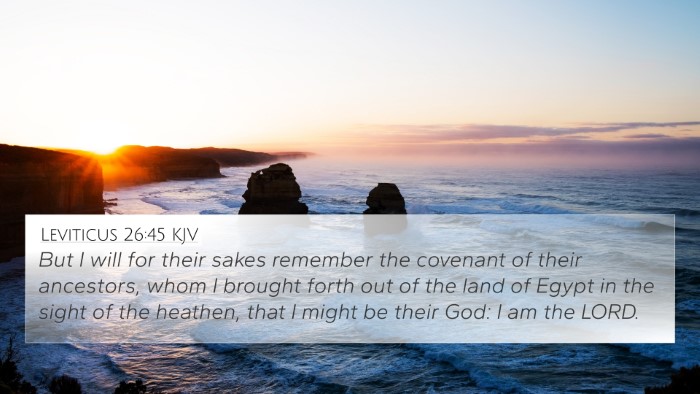 Leviticus 26:45 (KJV) »
Leviticus 26:45 (KJV) »
But I will for their sakes remember the covenant of their ancestors, whom I brought forth out of the land of Egypt in the sight of the heathen, that I might be their God: I am the LORD.
 Deuteronomy 31:6 (KJV) »
Deuteronomy 31:6 (KJV) »
Be strong and of a good courage, fear not, nor be afraid of them: for the LORD thy God, he it is that doth go with thee; he will not fail thee, nor forsake thee.
 Nehemiah 9:31 (KJV) »
Nehemiah 9:31 (KJV) »
Nevertheless for thy great mercies' sake thou didst not utterly consume them, nor forsake them; for thou art a gracious and merciful God.
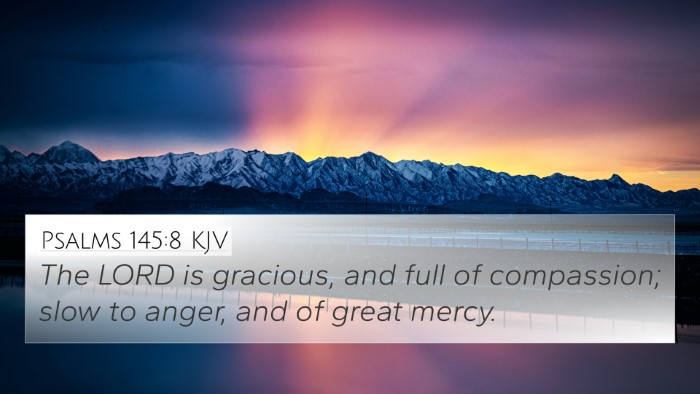 Psalms 145:8 (KJV) »
Psalms 145:8 (KJV) »
The LORD is gracious, and full of compassion; slow to anger, and of great mercy.
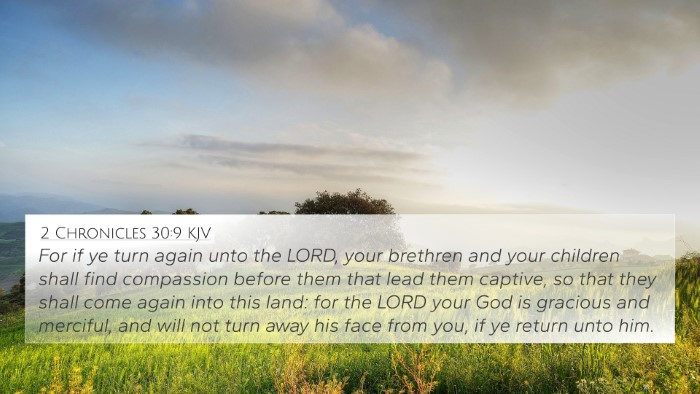 2 Chronicles 30:9 (KJV) »
2 Chronicles 30:9 (KJV) »
For if ye turn again unto the LORD, your brethren and your children shall find compassion before them that lead them captive, so that they shall come again into this land: for the LORD your God is gracious and merciful, and will not turn away his face from you, if ye return unto him.
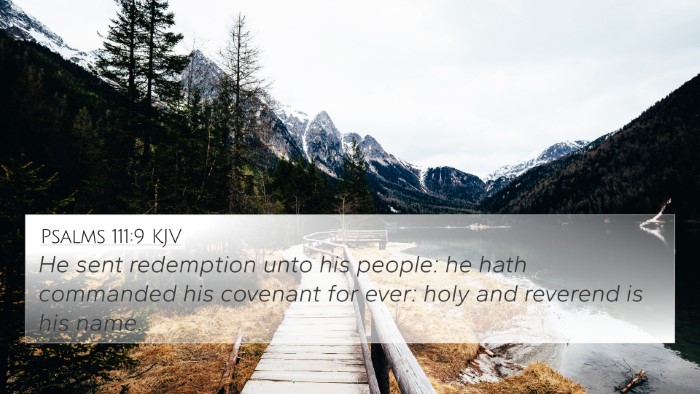 Psalms 111:9 (KJV) »
Psalms 111:9 (KJV) »
He sent redemption unto his people: he hath commanded his covenant for ever: holy and reverend is his name.
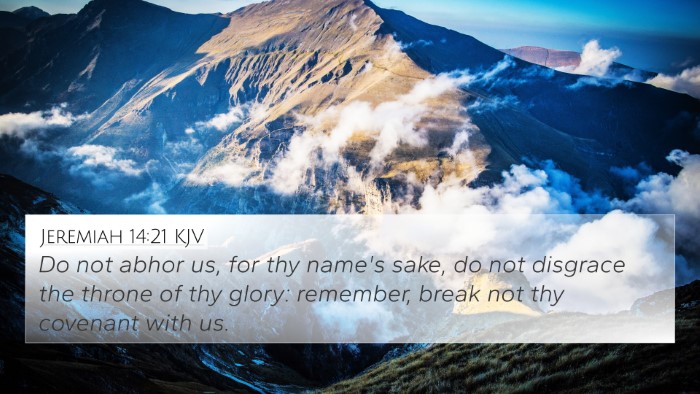 Jeremiah 14:21 (KJV) »
Jeremiah 14:21 (KJV) »
Do not abhor us, for thy name's sake, do not disgrace the throne of thy glory: remember, break not thy covenant with us.
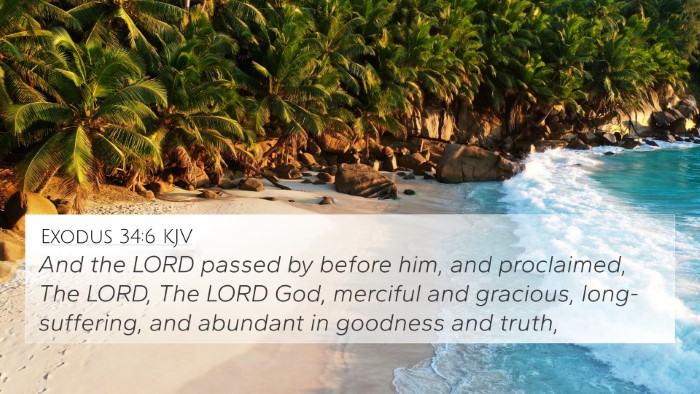 Exodus 34:6 (KJV) »
Exodus 34:6 (KJV) »
And the LORD passed by before him, and proclaimed, The LORD, The LORD God, merciful and gracious, long-suffering, and abundant in goodness and truth,
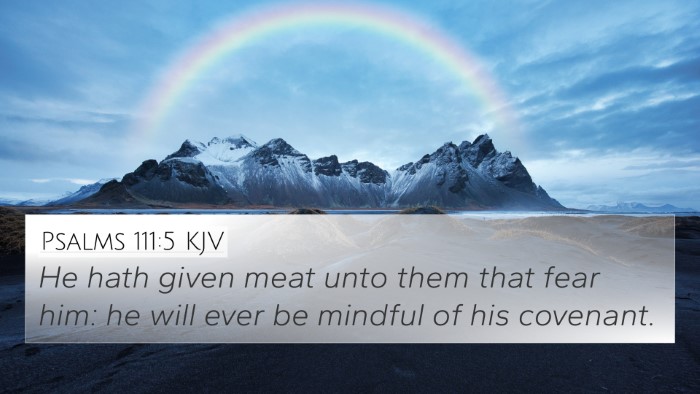 Psalms 111:5 (KJV) »
Psalms 111:5 (KJV) »
He hath given meat unto them that fear him: he will ever be mindful of his covenant.
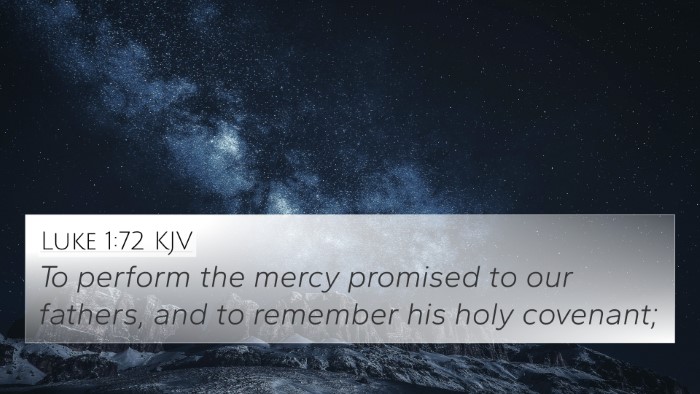 Luke 1:72 (KJV) »
Luke 1:72 (KJV) »
To perform the mercy promised to our fathers, and to remember his holy covenant;
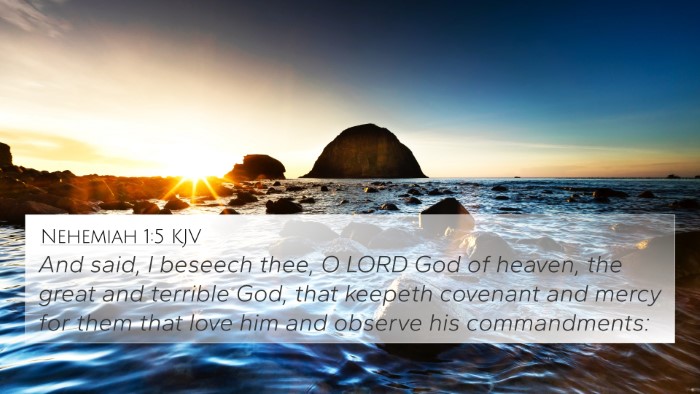 Nehemiah 1:5 (KJV) »
Nehemiah 1:5 (KJV) »
And said, I beseech thee, O LORD God of heaven, the great and terrible God, that keepeth covenant and mercy for them that love him and observe his commandments:
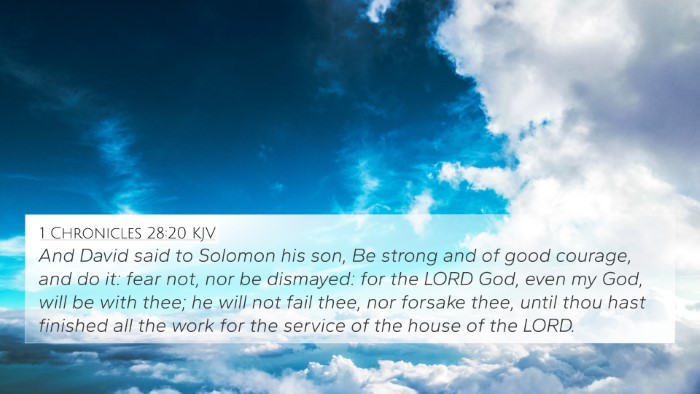 1 Chronicles 28:20 (KJV) »
1 Chronicles 28:20 (KJV) »
And David said to Solomon his son, Be strong and of good courage, and do it: fear not, nor be dismayed: for the LORD God, even my God, will be with thee; he will not fail thee, nor forsake thee, until thou hast finished all the work for the service of the house of the LORD.
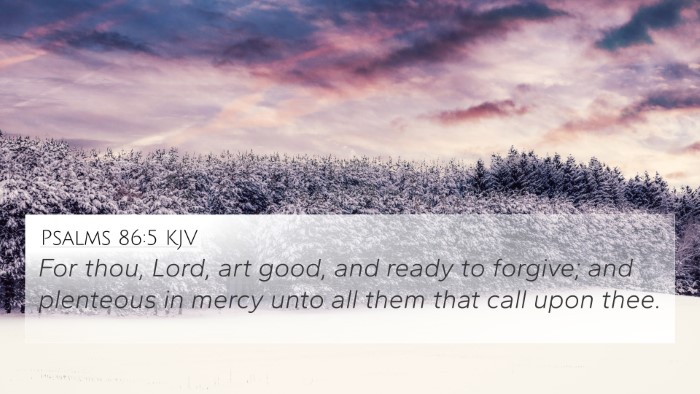 Psalms 86:5 (KJV) »
Psalms 86:5 (KJV) »
For thou, Lord, art good, and ready to forgive; and plenteous in mercy unto all them that call upon thee.
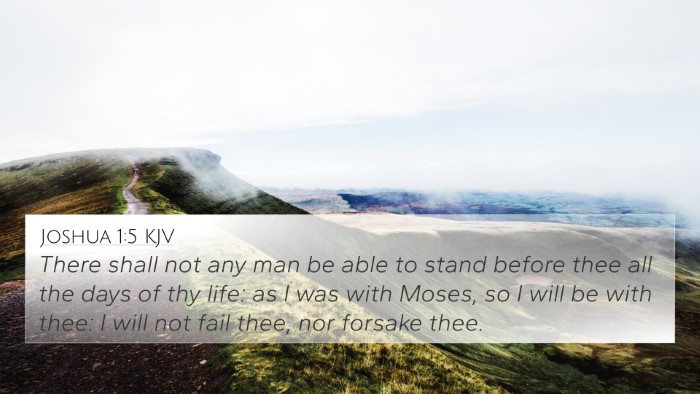 Joshua 1:5 (KJV) »
Joshua 1:5 (KJV) »
There shall not any man be able to stand before thee all the days of thy life: as I was with Moses, so I will be with thee: I will not fail thee, nor forsake thee.
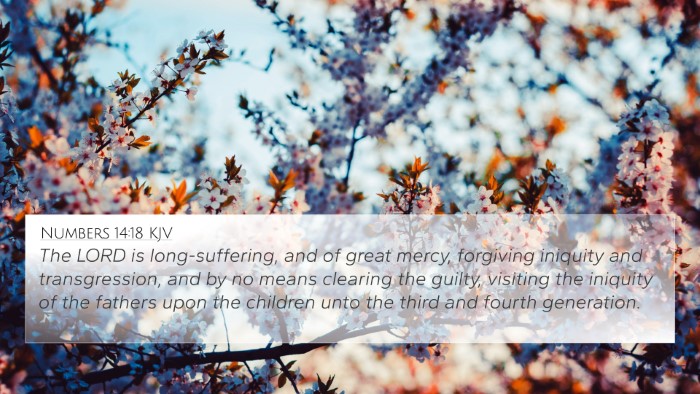 Numbers 14:18 (KJV) »
Numbers 14:18 (KJV) »
The LORD is long-suffering, and of great mercy, forgiving iniquity and transgression, and by no means clearing the guilty, visiting the iniquity of the fathers upon the children unto the third and fourth generation.
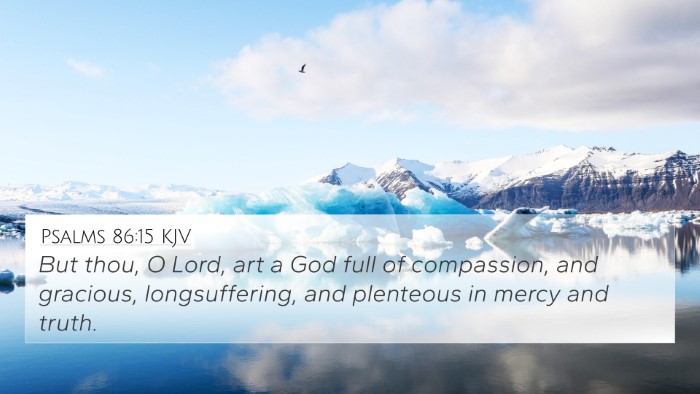 Psalms 86:15 (KJV) »
Psalms 86:15 (KJV) »
But thou, O Lord, art a God full of compassion, and gracious, longsuffering, and plenteous in mercy and truth.
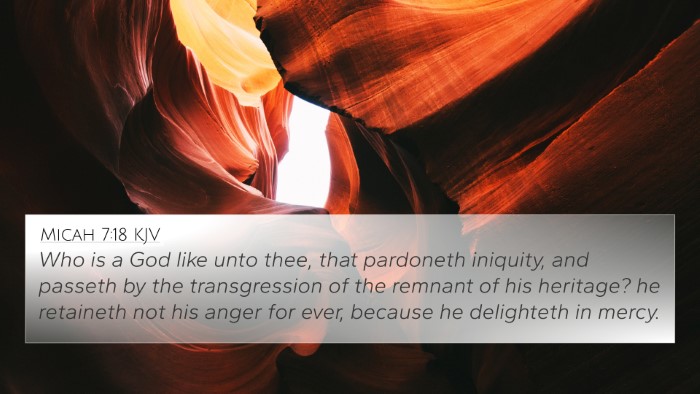 Micah 7:18 (KJV) »
Micah 7:18 (KJV) »
Who is a God like unto thee, that pardoneth iniquity, and passeth by the transgression of the remnant of his heritage? he retaineth not his anger for ever, because he delighteth in mercy.
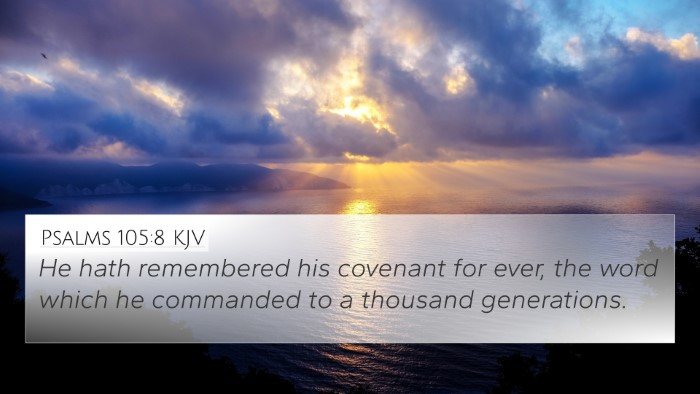 Psalms 105:8 (KJV) »
Psalms 105:8 (KJV) »
He hath remembered his covenant for ever, the word which he commanded to a thousand generations.
